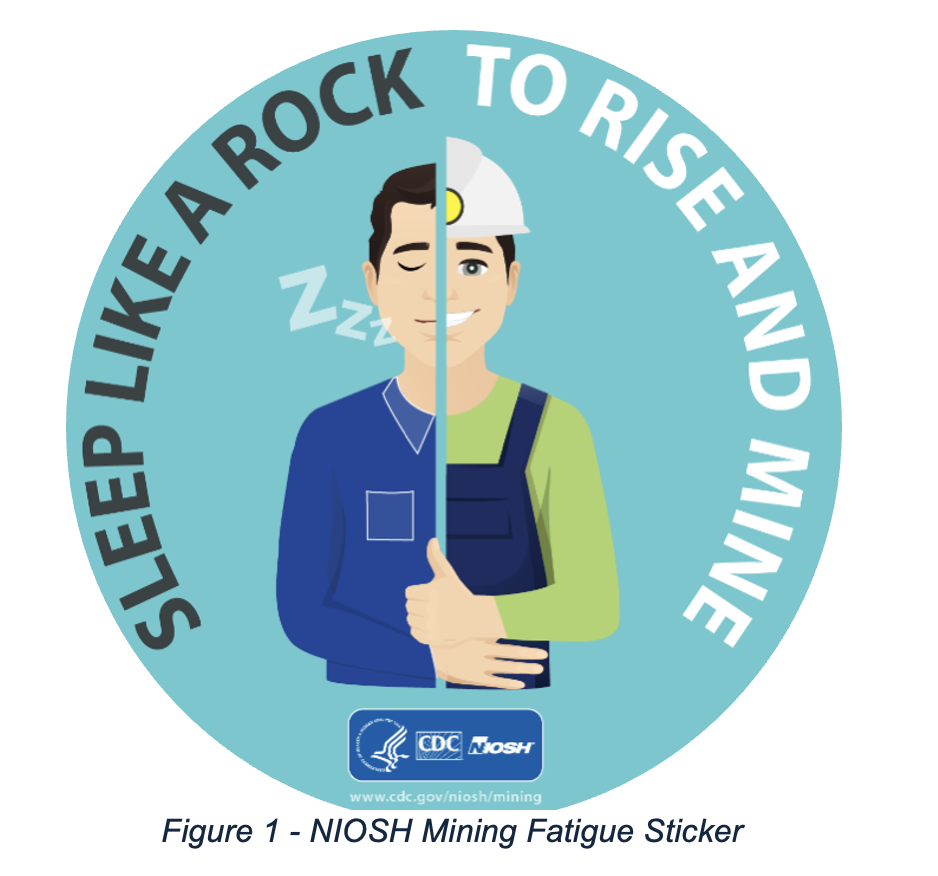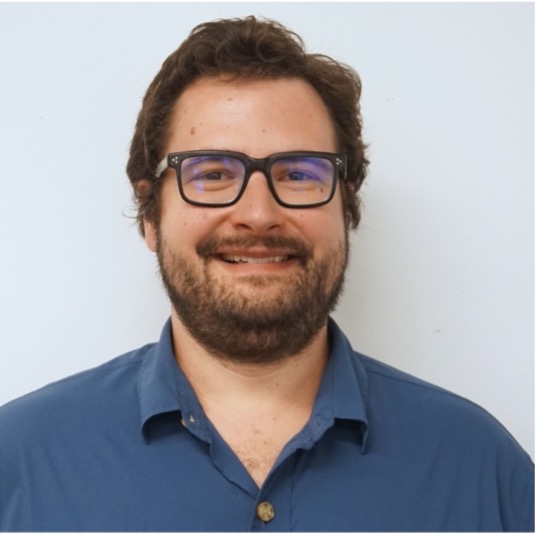Blog post by Tim Bauerle
Blog edited by Rebecca Brossoit
May 2024
Q: How did you learn about the field of Occupational Health Psychology?
A: Serendipitously! I was drawn into Industrial-Organizational (I-O) Psychology by fortune (or fate) as I had several eclectic jobs in my late adolescence and early adulthood, plus I was fascinated by the systems-level approach. To summarize one of the professors at my undergrad: in typical Freudian psychology you put the person on the couch; in I-O, you put the entire organization on the couch, along with all its workers, structures, levels, and hierarchies. At the time I was especially interested in work and the psychology of men and masculinity, and applied to I-O graduate programs that had a professor with a gender focus in their research. Again, by chance, the program also happened to be part of one of only a few NIOSH Total Worker Health Centers of Excellence, where I learned all about how these same structures and levels interact with and contribute to our health and wellbeing.
Q: Please describe your educational background. Where did you earn your degree(s)? Did you receive OHP-specific training during graduate school?
A: I went on to double major in Psychology and Communication Studies from Seattle Pacific University before then getting my master’s and eventually my PhD from the University of Connecticut in I-O Psychology. As you can imagine from my previous answer, being a part of the Center for the Promotion of Health in the New England Workplace (CPH-NEW) opened up a number of opportunities for me. I received quite a bit of educational training as well as field-based research experiences related to occupational health and safety, and eventually earned an OHP Certificate as part of my graduate studies.
Q: Where do you currently work and what is your job title?
A: I work as a “Research Behavioral Scientist” for the National Institute for Occupational Safety and Health (NIOSH), specifically in the Mining Program in Spokane, Washington.
Q: What was the application process like for this job?
A: The process has changed somewhat since I’ve started. Many of my coworkers joined the federal workforce through a variety of avenues, such as Pathways programs for students and recent graduates, research opportunities through the Oak Ridge Institute for Science and Education (ORISE), the Public Health Associate Program (PHAP), or applying directly to postings on USA Jobs, each with slightly different application requirements and processes. Patience will likely be key for applying to many of the positions in these programs, as postings usually receive many applicants, and the review process involves a few steps and relies on the coordination of several departments and offices. Also, preparing to apply for a federal job can be different than using the same materials you would typically consider to apply for a job in industry (e.g., 1-2 page resume) or an assistant professor position at a university (e.g., curriculum vitae). To learn more about applying for positions at NIOSH, check out the resources listed here.
Q: Please describe how you use OHP in your work. How does your role contribute to improving employees’ health, safety, and/or well-being?
A: In one form or another, much of my job involves the consideration of psychosocial factors and hazards and how they can impact worker safety, health, and wellbeing. As an example, for the last 7 or so years I had led various research projects on work-related fatigue risk in the US mining industry. In my humble opinion, fatigue is one of those topics that is ripe for OHP involvement—a complex, systems-level, multidisciplinary, latent factor construct that is difficult to directly assess, is heavily influenced by the work-life interface, and contributes to long- and short-term health and safety outcomes for workers. Being in the federal sector, our role in addressing health and safety concerns is slightly different: the emphasis is placed much more heavily on impactful solutions. Sometimes that takes the form of publication in journals to ensure the quality and credibility of our work through engaging with peer review and the scientific community. Since such outlets are often not the communication method of choice for one of our most critical demographics—mining industry workers—our work also involves many translational outputs such as infographics on sleep tips and fatigue risk, and stickers with health communication messages (Figure 1). In short, I lean heavily on my OHP roots in consideration of psychosocial risk factors and interventions to address multifaceted health and safety issues in mining, through both research and development of applied solutions.

Q: What does a “typical day” in your job look like?
A: At its core, much of my day-to-day tasks may closely mimic that of some of my academic colleagues. Certainly a large chunk of my time is spent on research, whether that is designing studies, submitting clearances and protocols, planning timelines, collecting and analyzing data, and disseminating results through a wide variety of outlets. At times, my workday can also involve a fair number of administrative duties, such as budget meetings, providing project updates, or preparing forms and presentations. Although I enjoy engaging directly with research, administrative duties like these are very important to me as a civil servant so that I can strategically plan, allocate resources, and report on research projects in a way that is not only compliant with various regulations and standards, but ultimately demonstrates responsibility and transparency to our partners and the public. In addition, there may be some tasks related to external responsibilities, such as virtual research presentations, providing peer review for a research manuscript, meetings with various collaborators (e.g., mine safety and health representatives, trade groups, academic colleagues, health and safety partnerships), serving on review or conference boards, or fielding emails concerning fatigue-relevant questions from mining industry leaders.
Q: What is your favorite part of your job?
A: Anytime I get to see “real people doing real work.” The work that we do as researchers is incredibly important but can at times feel intangible or tedious. On the surface, going to a regional mining trade conference may not seem as prestigious or rigorously technical as an academic conference. On the contrary, I feel that they offer just as many (if not more) invaluable, pragmatic experiences that have always left me feeling grounded (if you’ll pardon the pun). Sometimes you get to see in real time the application and benefit that your work has in helping to address complex problems. Sometimes an attendee will inform you that your opinions or findings are nonsense (or perhaps a more colorful description), which leads to a rich and exciting opportunity for dialogue about the nuances between data, interpretation of findings, and lived experiences. Genuinely, those are important learning moments for us as researchers, to sit back and be educated by an expert that has gifted us with their time. Regardless, I learn something every time I attend that I could never have read in a textbook, and I receive crucial feedback from the people whose opinions matter the most. Every once in a while, I am especially lucky and get to set foot on an active mine site, sometimes thousands of feet below the surface, and get just a small sample of what the folks in our industry do every day.
Q: Which skills are the most important to succeeding in your current role (e.g., communicating with clients, data analytics, etc.) and why?
A: Some of the key ones that come to mind are:
Interdisciplinary Experience – There are a wide variety of educational backgrounds in my office, including industrial hygiene, epidemiology, public health, medicine, health communications, engineering (electrical, chemical, mechanical, mining, computer, materials), and statistics, just to name a few. Finding common ground and compromise is critical for success, along with getting comfortable asking lots of questions.
Setting and Managing Reasonable Expectations – As a graduate student, we’re often taught what the gold standard is for research methods across a variety of different topics. This is important, but equally important is finding your niche and seeing where opportunities exist to fill gaps. Designing simple, sensible, impactful research projects with flexibility in mind from the start is pragmatic and demonstrates wise use of resources. As my supervisor is fond of reiterating, “have a plan, know the plan, just don’t fall in love with it.”
Patience – As researchers in the public sector, we complete complex research tasks while existing in complex structures with multiple layers and procedures. Having firm but kind persistence while navigating these layers and procedures to attain project goals is essential.
Q: What advice do you have for graduate students interested in OHP careers?
A: A few pieces of advice:
Breadth vs. Depth – Try as much as you can without overburdening yourself. There will be time for deep dives later in your graduate or professional career, but getting a little taste of a lot of different methods, topics, and settings will offer you rich information.
Know What You’re Looking For – Sometimes, applying for OHP jobs can feel like a double-edged sword: you have a litany of multidisciplinary experience that can make you a solid candidate for a wide variety of positions, but hiring managers may not be familiar with the discipline or your background. For that reason, rather than thinking in binary terms of “applied vs. academic”, take a step back and critically ask yourself what are the core non-negotiables that are fundamental to what you want in a career (compensation, flexibility, prestige, travel, benefits, personal satisfaction, etc.). From there, know how to sell your knowledge, skills, and abilities (KSAs), and plan on how to market those KSAs to match a wide variety of job titles that meet your non-negotiables. As someone who at one point felt “stuck” between the false dichotomy of applied vs. academic, I wish I had learned this advice earlier!
Practice Humility – As a fresh-faced graduate student leading a focus group with maximum security correction officers, I foolishly started listing off my degrees and certifications out of nervousness in an attempt to establish some kind of expertise or authority. One of the participants leaned in and interrupted, “nobody gives a damn what kind of alphabet you’ve got after your name.” He was certainly candid, but he was also right. Getting a postgraduate degree is a really big deal, but it shouldn’t interfere with drawing from the wealth of applied expertise in those around us. Curiosity will rarely be a detriment to you, especially as a scientist.
Q: Anything else you’d like to share?
A: My career path has not been (and will likely continue not to be) a straight line. Follow opportunities when they present themselves, be inquisitive, ask lots of questions, and lean on others for assistance along the way.

Tim Bauerle, PhD, is a research behavioral scientist in the National Institute for Occupational Safety and Health’s Spokane Mining Research Division (SMRD). He holds a doctorate in Industrial-Organizational Psychology from the University of Connecticut, with concentrations in Occupational Health Psychology and Quantitative Research Methodology. Tim has developed an expertise on fatigue in the mining workforce and recently served as the Principal Investigator of several mineworker fatigue projects, the goals of which were to develop resources to better support the industry in effectively managing work-related fatigue risk.
In his free time, Tim does his best to practice OHP principles by utilizing flexible telework policies, spending quality time with his family, and playing tabletop games like Magic: The Gathering with friends.
Contact Info: tbauerle@cdc.gov / LinkedIn / ResearchGate
